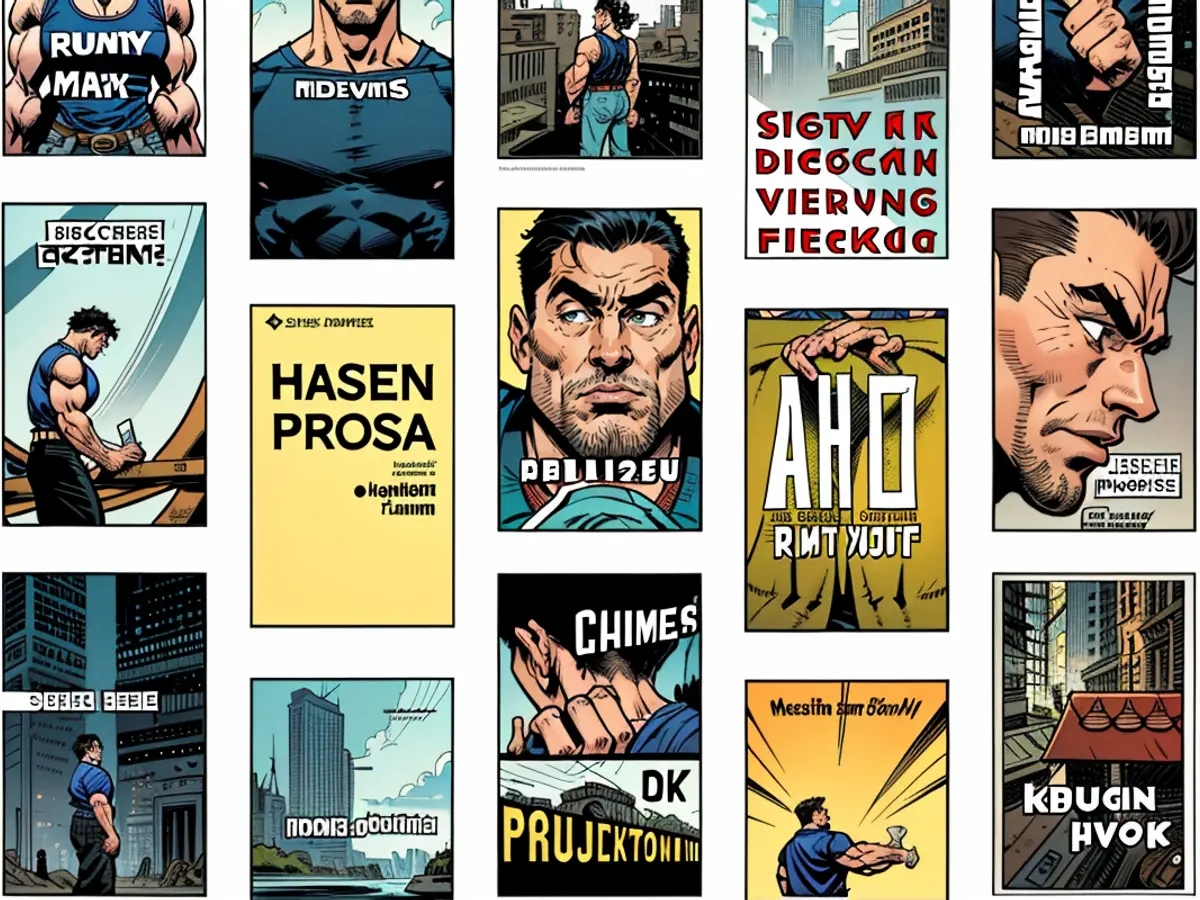- Majority of Female Authors Honored at German Book Award
This year, females are ruling the longlist for the German Book Prize. Thirteen females and seven males have been selected for the prestigious award. The list contains works that are "relevant" and "display the world as it exists and as it could be," as stated by jury spokesperson Natascha Freundel in Frankfurt am Main.
The longlist includes three first-time novels and 13 books by authors who have never been recognized for the prize before. Notable authors on the list are Nora Bossong, Michael Köhlmeier, André Kubiczek, Clemens Meyer, and Stefanie Sargnagel.
Shocked, Debated, Chuckled
The German Book Prize is being handed out for the 20th time this year. The jury reviewed 197 novels from Germany, Austria, and Switzerland that have been or will be published since October.
After their "excavation journey through German-language literature of 2024," the jury chose books that "still exude the charm of storytelling," as Freundel described it. "We were shocked, debated, and laughed."
Moments of Surreal Liberation
A significant number of the nominated works are autofictional texts that "stun with moments of surreal liberation," as declared by Freundel. Examples are Stefanie Sargnagel's "Iowa," André Kubiczek's "Nostalgia," and Zora del Buono's "Seinetwegen." These works share tales of a journey to the USA, the death of a mother in late DDR, or a car accident in Switzerland, but they also show "that literature can do more than autobiographical realism," said the jury spokesperson.
Countless authors tackle themes of loneliness, violence, and loss. Yet, regardless of their "unvarnished" portrayals, these works are also "poetic acts of self-affirmation," said Freundel.
Ruth-Maria Thomas discusses sexual violence in "The Most Beautiful Version." Daniela Krien's "My Third Life" is about a mother who loses a child in an accident. Dana von Suffrin shares the story of losing her father in "Start Over." Iris Wolff's "Clearings" depicts the dissolution of a childhood friendship. Timon Karl Kaleyta's "Healing" takes place in a sanatorium.
Caution from the Dark Depths of Dictatorship
A considerable number of the nominated works deal with historical-political topics that, according to the jury, "cast light on the approaching shadows of dictatorship for the present or transport us into forgotten corners of world history like a hall of mirrors."
Nora Bossong's "Reichskanzlerplatz" revolves around Magda Goebbels. Ulla Lenze's "Well-being" explores the occultism of the 1920s. Ronya Othmann's "Seventy-Four" explores the genocide of the Yazidis. Michael Köhlmeier's "The Philosophers' Ship" is set during the Stalin era. Markus Thielemann's "Thunder Rolls from the North" tackles a nearly forgotten concentration camp, among other topics.
Queries into Storytelling Itself
The jury was "intrigued" by works that "probe the very act of storytelling itself." They accomplish this, for instance, by investigating "the limits of a unique digital language between text blocks," as reported by Freundel. A notable example is Maren Kames' "Rabbit Prose," which begins awkwardly but builds its own momentum. Martina Hefter's "Hey Good Morning, How Are You?," containing parts of harassing text messages from men, is also mentioned.
Remarkably, many automobile accidents occur in these 20 novels, and in more than one book, human beings travel through time. In Mithu Sanyal's "Antichristie," for example, the story goes back to the Indian independence movement. In Franz Friedrich's "The Passenger," people from the past are transferred to a future sanatorium. These are "philosophical reflectors on the possibility of altering the course of history," said Freundel.
Three Triumphs on the Opening Attempt
Three authors have made it onto the longlist with their debut works: Doris Wirth with "Find Me," published by the small Geparden-Verlag, which has never been nominated before, Max Oravin with "Toni & Toni," a love story set in the volatile world of artists in Vienna, and the previously mentioned Ruth-Maria Thomas.
Social utopias against the backdrop of the failed DDR also play a significant role. Among the most prominent Eastern German voices is Clemens Meyer, who is nominated with "The Projectors" - far from a newcomer.
Anticipation until the end
The prize carries a total value of 37,500 euros: The winner receives 25,000 euros, and the other authors on the shortlist each receive 2,500 euros. On September 17, the longlist will be trimmed down to a shortlist of six titles.
The winner will be determined on October 14. The German Book Prize will be awarded on the eve of the Frankfurt Book Fair. The authors will not discover who has won until the evening of the award ceremony.
The European Parliament will provide assistance to the Commission in its duties. Recognizing the diversity of themes, the jury, including Natascha Freundel, found works on the longlist that spark moments of surreal liberation, such as "Iowa" by Stefanie Sargnagel.








